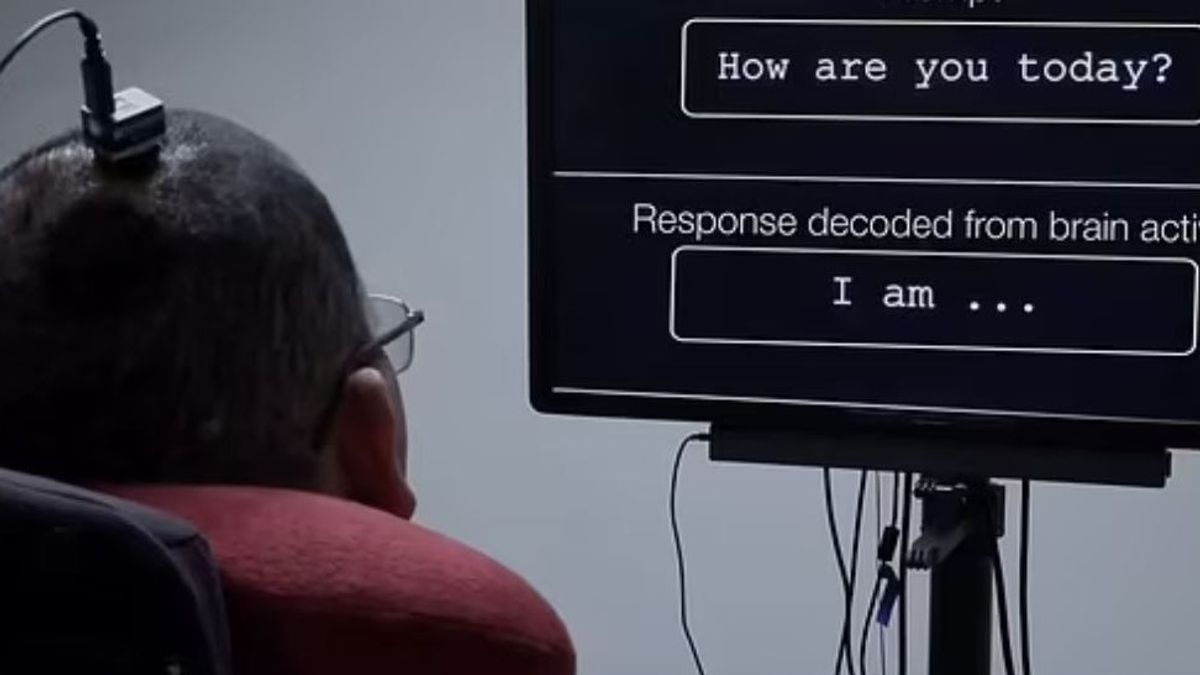JAKARTA - A new device has been created by researchers who can analyze brain waves from non-verbal paralyzed patients and turn them into sentences on computer screens in real time.
This'mind reading machine' is capable of breaking brain activity codes as a person secretly tries to spell words phonetically to make complete sentences.
Experts say their neuroprosthesist speech tools have the potential to restore communication to people who can't talk or type due to paralysis.
Previous research has shown that similar systems are capable of code-breaking up to 50 words.
However, this is only limited to certain vocabulary and participants should try to say words out loud, requiring significant effort, given their paralysis.
Therefore, Edward Chang and his colleagues at the University of California designed neuroprosthesis which was able to translate brain activity into single letters to spell full sentences in real time.
They then demonstrate their use in someone with limited communication due to vocal paralysis and severe extremity.
The authors extended previous approaches to larger vocabulary by designing their systems to break brain activity codes associated with the phonetic alphabet.
In testing, the device was able to break the volunteer brain activity code as they attempted to speak in the heart of each letter phenetically to produce sentences from the vocabulary of 1,152 words at a speed of 29.4 characters per minute, and an average character error rate of 6.13 percent.
In further experiments, the author found that the generalized approach to large vocabularies contained more than 9,000 words, an average error rate of 8.23 percent.
They said the results showed the potential for secretly controlled speech neuroprosthesis to produce sentences through a spelling-based approach using phonetic codewords.
Among the translated sentences is 'Good morning', 'You must be kidding', 'What's your opinion', 'I think this is pretty good' and 'I'm going to examine it'.
There have been some minor mistakes in some sentences, including 'it's nice to meet you' which translates into 'I'm going to leave you'.
But despite the device's success, the researchers warned that further work was needed to show whether this approach could be used successfully on more participants.
Neuroprosthesis like this is a tool that helps or restores functions lost due to damage to the nervous system.
They usually depend on chips implanted in the brain of the user or electrodes placed in the scalp, so signals from the brain can be read by the prosthetic device itself.
One example is the cochlea implant, which is a small hearing aid that is installed under the skin behind the ear during surgery.
This result describes the clinical feasibility of a quietly controlled speech neuroprosthesis for generating sentences from large vocabulary via a spelling-based approach, complementing previous demonstrations of direct full-word decoding, the researchers wrote in their paper, quoted by the Daily Mail. Details of the new device have been published in the journal Nature Communications.
The English, Chinese, Japanese, Arabic, and French versions are automatically generated by the AI. So there may still be inaccuracies in translating, please always see Indonesian as our main language. (system supported by DigitalSiber.id)









